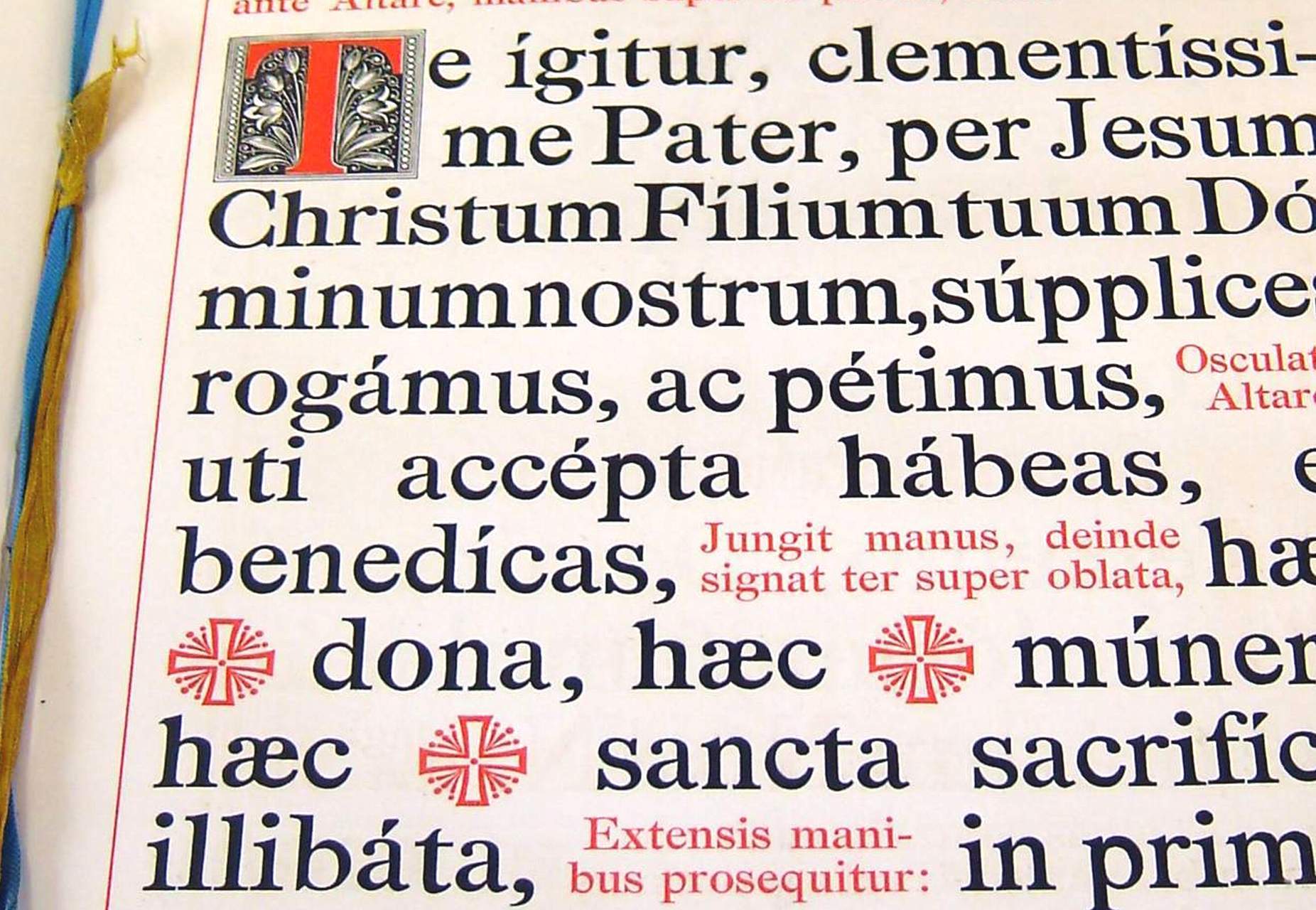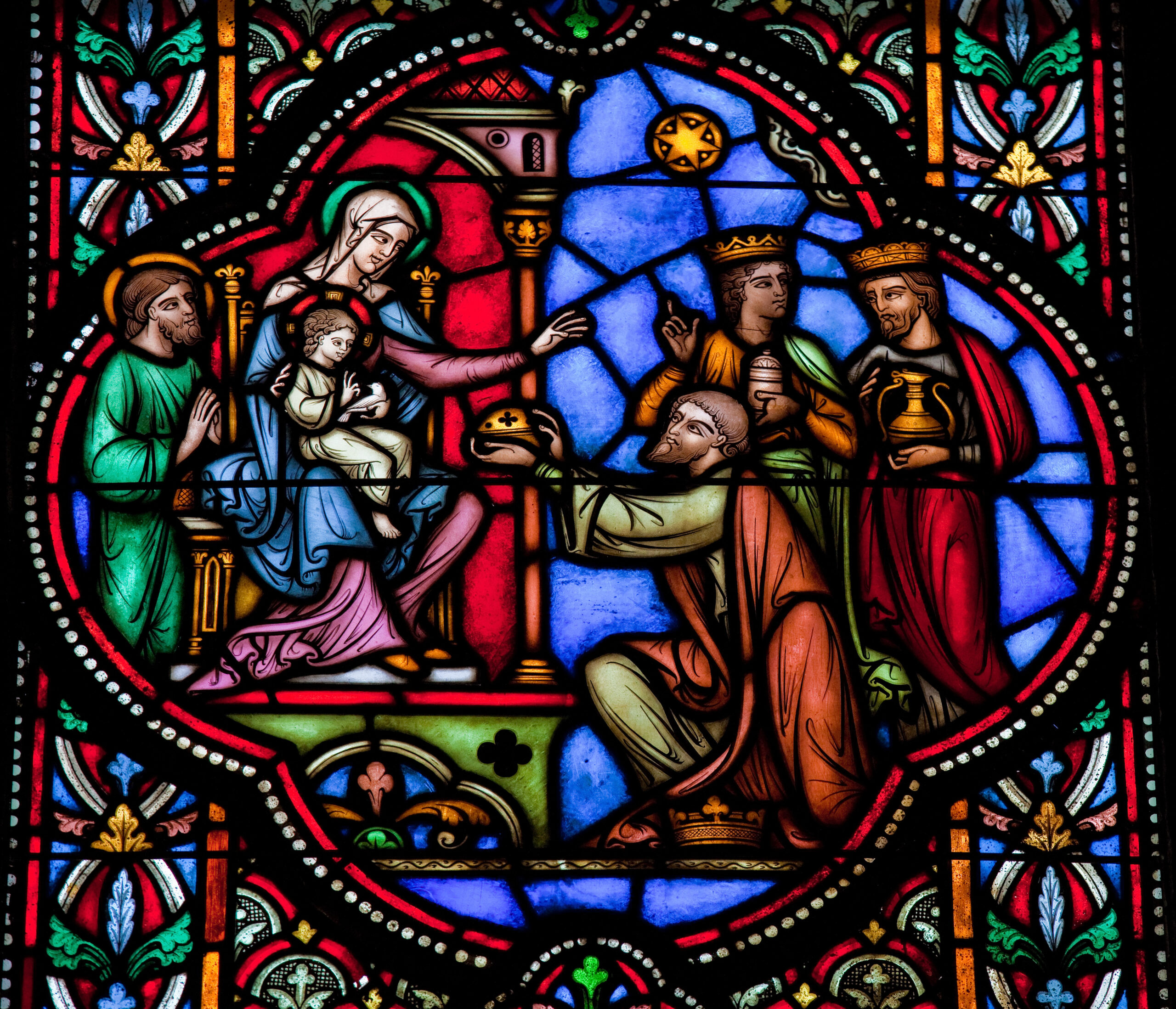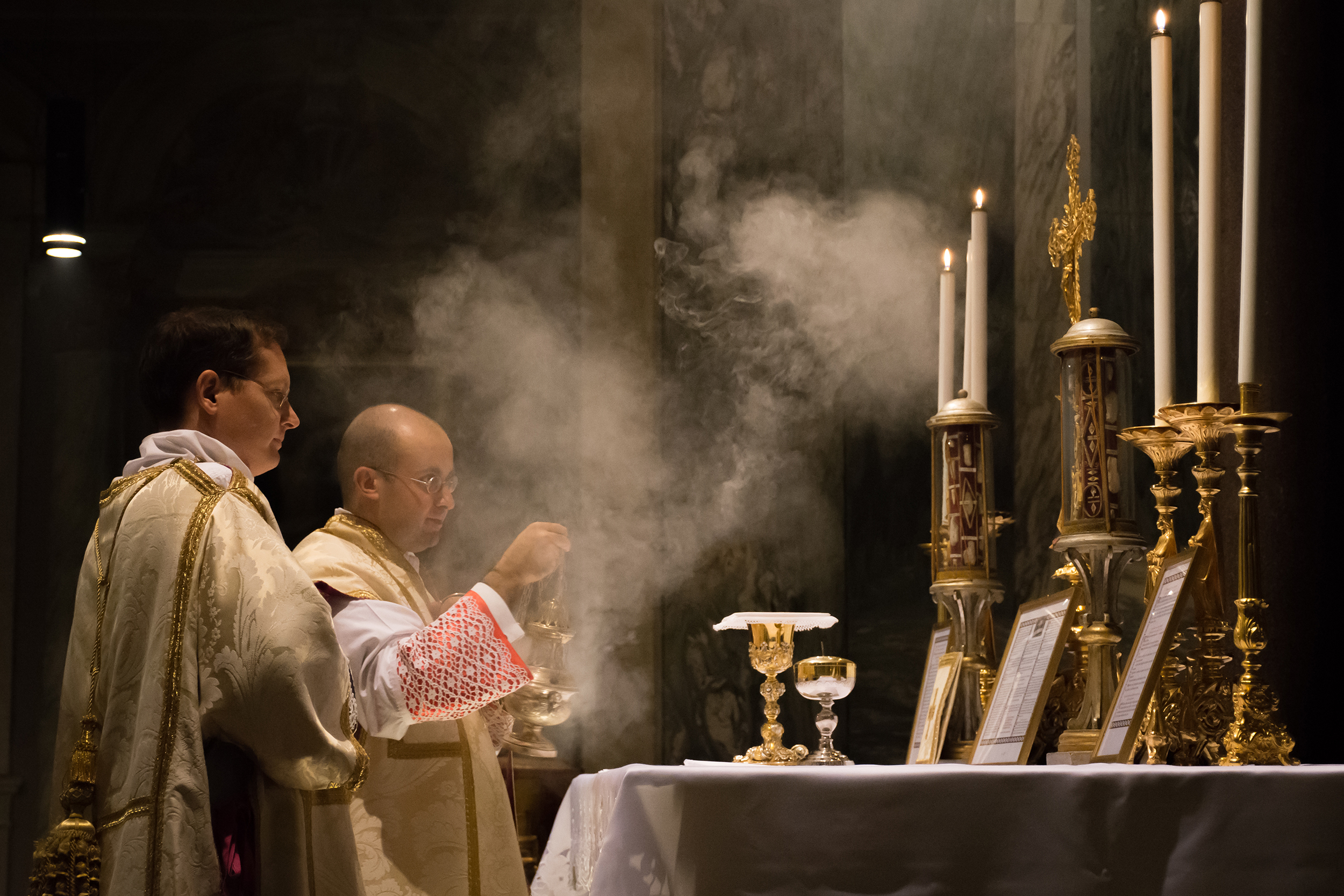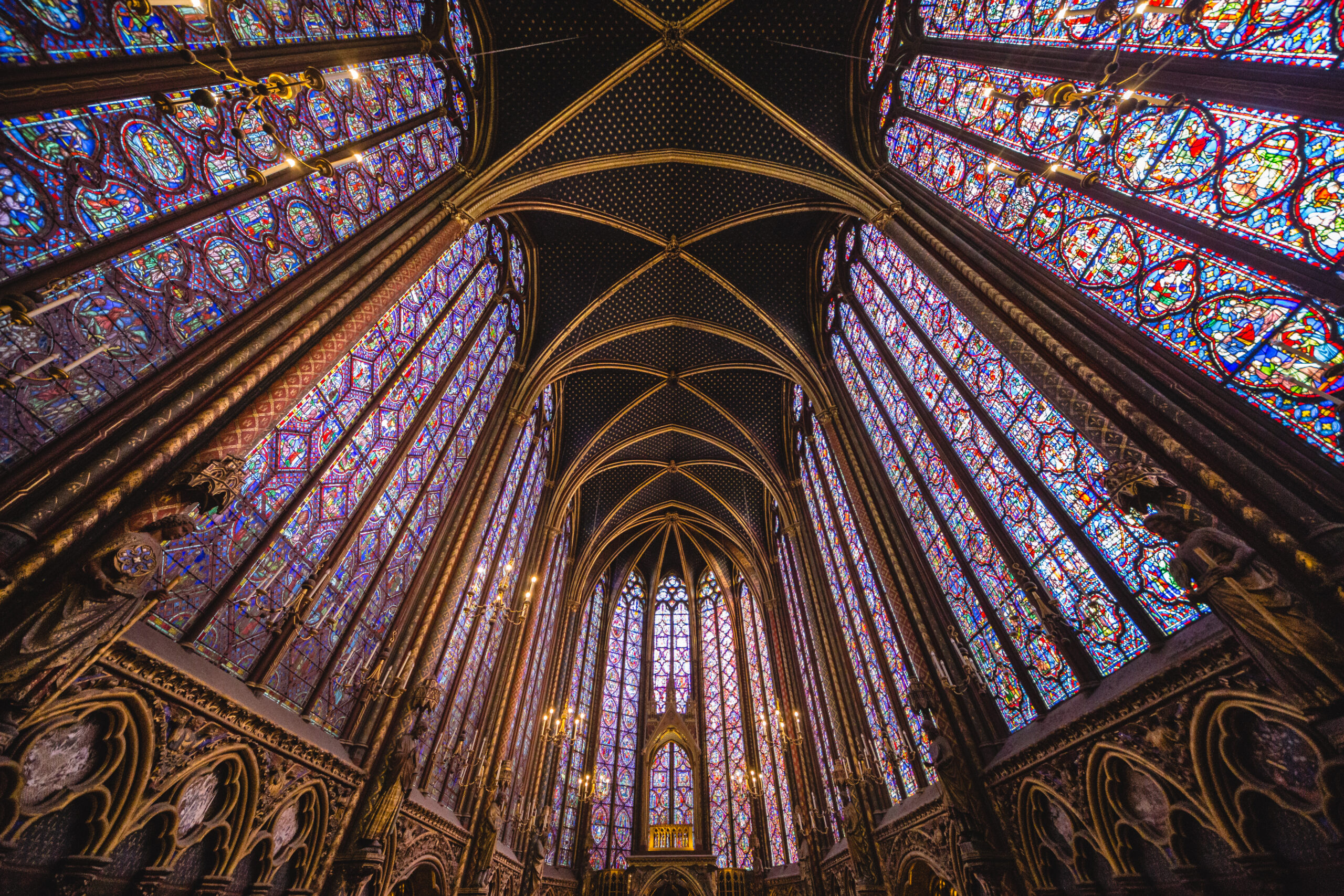“Since it is so likely that children will meet cruel enemies, let them at least have heard of brave knights and heroic courage. Otherwise you are making their destiny not brighter but darker.”
—C. S. Lewis
Let us go back to the days of chivalry, of brave knights and their lady loves, of bold adventure and religious fervor inspired by the highest of ideals. Let us look back to the days of the Knights of the First Crusade for guidance and to emulate the devotion of these knights, especially to the Eucharist.
The World of the Medieval Knight
It was a great world that was in the mind and heart of the medieval knight who was striving for sanctity and virtue. The world he saw was a great challenge. And the knight was trained heart, mind, and soul for his task as he gave himself in the service of his king and Christ—or to put it better, ultimately to Christ who is King.
One cannot but recall beautiful images of knights in murals in various books, monasteries, church chapels, and library walls. The artist Edwin Abbey comes to mind as well as the mural in the Boston Public Library, with its enchanting image of the “Quest of the Holy Grail.”
In this image, we recall the knight in his red tunic kneeling before the altar and ready to take the oath of knighthood. Is there any better image of a knight for today? To understand clearly the vocation of the knight, with his reverence to God, his sovereign in heaven, and to his king on earth, the sovereign chosen by God to rule his kingdom, we envision the brave knight taking a knee in prayer.
The Spirit of Chivalry at Work
Young men then as now go forth in search of the supreme prize in life, armed with maturity and readiness to strive for greatness. After a lifetime of formation, they are ready to be great. The youth of today can learn from the spirit of chivalry, being armed, accoutered, and trained to meet every challenge of life in a spirit of manly dedication and self-giving. Aiming always for what is highest in this life, the knight keeps his focus on the next life with God.
Without entering into the detail of the quests upon which the knights of old were sent forth, we note how holy and great many of the Crusader knights were, such as Sir Godfrey of Bouillon and his knights who grew into the Knights of the Equestrian Order of the Holy Sepulchre of Jerusalem, who helped liberate and guard the empty tomb of Christ at the end of the First Crusade in 1099.
Their self-effacement and utter abandonment of every selfish motive as they offered their lives and guarded the place of the Resurrection stands as a moral example for the young of today who long to be inspired and motivated to greatness. Think of their sense of dedication, leaving home and hearth, facing every situation in frankness with utter courage and firm confidence in the greatness of their Faith and the charge to defend the empty tomb of Christ to death. The reward, in the end, is an eternal reward where it can be said of the dead, “Well done, good and faithful servant.”
The Knight Striving for Spiritual and Moral Perfection
Under all the symbolism of the goodness that knights stood for, the constant war these noble men were engaged in stands out. This was principally a war against the soul of man, an age-old war for holiness and purity of heart, the individual struggle to become closer to Christ. The special power of the knight was in his filial devotion to the Holy Sacrament of the Altar. The knight who struggled for virtue and closeness to God on the road to perfection was the knight victorious on the last day through devotion to the Blessed Eucharist.
The spirit of knights is necessary today to gain unique insight into the continuing struggle of good and evil that, ultimately, is a step-by-step process of daily conversion and sacrifice so that we may be found worthy for one of those mansions prepared for us in the kingdom to come, prepared in heaven from the foundation of the world before all creation.
Knights form an elite exemplar not because they stand above others but because they are capable of attracting and influencing others. Knights are influencers who should be ordinarily and specially gifted and endowed with certain characteristics for leadership and service.
They should be ready, willing, and able to stand up and be heard. They should be men of sound virtue, humble, docile to the will of Christ while seeking to live the Christian life to a more perfect degree. This is the opposite of zealots who but possess no real virtue and little instruction.
In a spiritual way, knights carry a sword and shield. This is symbolic of their willingness to serve the public interest, to protect and to never do harm. This is a key component to understand the brave role of knights in the past. Knights are the signs of the nobility or aristocracy of the soul, a religious elite who elevate others by a life of service, professional accomplishments, and example.
Knights epitomize certain ideals. The deeds of knights inflame us. Their bravery emboldens us. The human heart is reached in a powerful way through the imagination by means of the direct impressions and the testimony of the virtues and brave deeds of past knights.
A child gets moral notions and lessons from the stories and legends of knights. They delight in these, as do parents, following the tale and verse of the historical narratives of these brave and virtuous men.
The Story of King Arthur
In the story of King Arthur, a story that inspired the first crusaders from England, we see the land into which Arthur came, with Lancelot and Galahad. It was described as large tracts of wilderness where the beast was more and more, while man was less and less.
What was true of the land in this story reflects what is true of man’s soul. The beast in him can be more and more, and the man less and less. This law of nature is reflective of the everlasting struggle of good and evil in the human heart, which is at the basis of all human struggle.
This is also the start of all efforts at the restoration of self and society. It was in that similar struggle that King Arthur established that fair order of his Round Table. And is not the Round Table like the family in the modern world, with its training and strategy, vigils and dedication of service to the King of kings through the service of his children?
Note of Encouragement to Catholic Men
In a real sense the Catholic family produces knights who are to go forth, sent out exactly as the knights of old were sent forth in a dark land to lighten it and to make a dead world live. May all young Catholic men be enlisted in a modern knighthood, whose armor is the soul in the state of grace ever ready to do battle for the Lord in the combat of everyday life, ready for anything, even honor and glory.
To young Catholic men: take up the emblem of the cross, wear it and do the duty which you see. Hold firm to your faith. Light a candle. Be a rock. Help people grow in love of neighbor for the love of God. In God’s service, there is no large or small. Do the little thing, the insignificant thing. Do not call it small. Whatever your state in life or wherever you are, you can make a fair beginning of a time.
Knighthood must be in the soul and revealed through acts, as Tennyson tells the story of King Arthur and his knights who are told to serve as a model and uphold Christ…
“But I was first of all the kings who drew
The Knighthood-errant of this realm and all
The realms together under me, their Head,
In that fair Order of My Table Round,
A glorious company, the flower of men,
To serve as model for the mightly world,
And be the fair beginning of a time.
I made them lay their hands in mine and swear
To reverence the King, as if he were
Their conscience, and their conscience as Their King,
To break the heathen and uphold the Christ,
To ride abroad redressing human wrongs,
To speak no slander, no, nor listen to it,
To honor his own word as if his God’s,
To lead sweet lives in purest chastity,
To love one maiden only, cleave to her,
And worship her by years of noble deeds,
Until they won her; for indeed I knew
Of no more subtle master under heaven
Than the maiden passion for a maid,
Not only to keep down the base in man,
But teach high thought, and amiable words
And courtliness, and the desire of fame,
And love of truth, and all that makes a man.”








